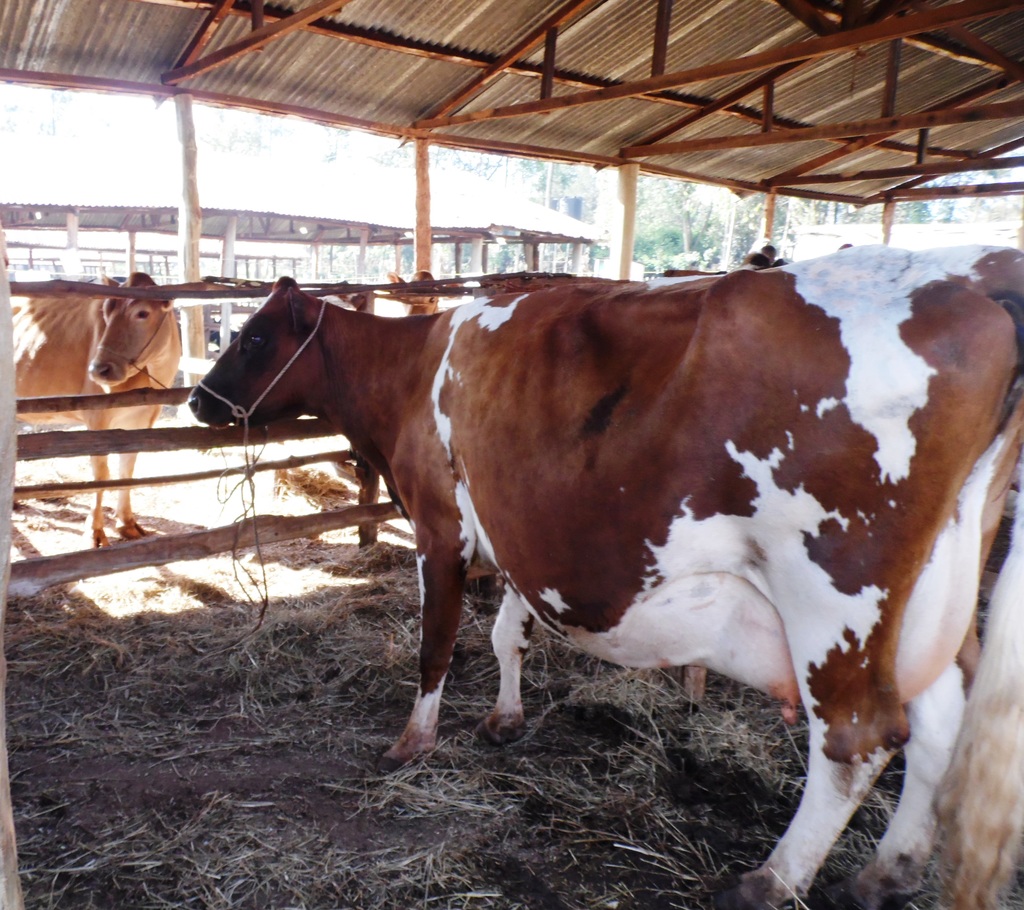A dairy cow in one of the sheds at the Kitale Show Ground on October 29, 2016. gradual increase of dairy meal keeps milk constant after parturition. PHOTO BY LABAN ROBERT.
Gradual increment of dairy meal served to the cows soon after parturition keep milk yields steady past the two first peak months.
An increase of between a half a kilo and one kilo of the dairy meal improves the food reserves in the cow, although its appetite remains low in the first two month of delivery.
“Milk let down after parturition is impressive because of the high concentration of hormones as well as accumulation. The drop is imminent in a month or so despite the rise in the appetite of the cow. That is why an increase in the meal would keep the milk production steady up to two months to the next calving down,” Kakamega Prisons officer in charge of farming, Fredrick Misoi said.
READ ALSO: Dairy crossbreeding project targets 6000litres a cow yearly in milk yields
The feed increment is relative to the size and breed of the cow. For instance, if the cow is to be given 10kg of dairy meal per day, it can be increased gradually with half or a kilo. Ayshires can be given a half while a Friesian will receive one kilo increment.
Increasing the ration as the appetite increases ensures that the cow recovers and stabilises in terms of body muscle rebuilding, milk hormones uplifts as well as mineral deposits after the ‘losses’ during gestation.
READ ALSO: Feeding dairy cattle with yeast adds farmers three litres of milk
At least 60 litres of water per day must be available daily. Besides inclusion of protein boosting feeds such as Lucerne and calliandra, concentrates can be made locally from maize or rice jam missed with sunflower as the source of proteins. Rice jam and sunflower have to be missed in the ration of four kilos to one kilo respectively.
Increase in grain intake is done at a one per cent to two per cent depending on the body weight.

















Comments powered by CComment